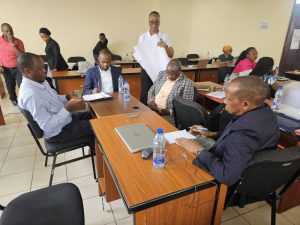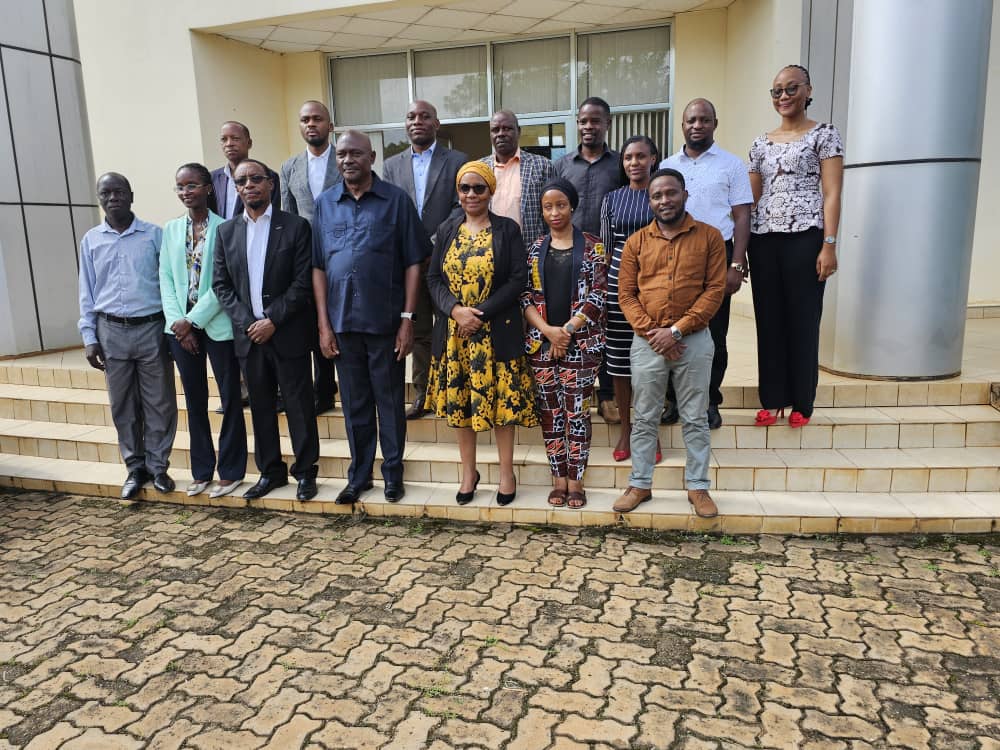A two-day workshop on Policy Prioritization through Value Chain Analysis (PPVC) was held in Morogoro, Tanzania, from April 4th to 5th, 2024. The workshop was organized by Sokoine University of Agriculture (SUA) through researchers in the Department of Trade and Investment, who are currently implementing the PPVC project.
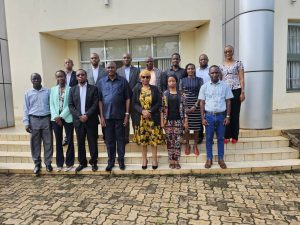
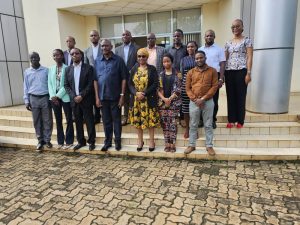 Representatives from the government (Ministry of Finance, National Bureau of Statistics, Ministry of Livestock and Fisheries) and researchers from Sokoine University of Agriculture attended the workshop. The primary objective was to train participants, mainly from government ministries, on how to utilize the PPVC toolkit to prioritize value chains for policy and investment decisions.
Representatives from the government (Ministry of Finance, National Bureau of Statistics, Ministry of Livestock and Fisheries) and researchers from Sokoine University of Agriculture attended the workshop. The primary objective was to train participants, mainly from government ministries, on how to utilize the PPVC toolkit to prioritize value chains for policy and investment decisions.
The workshop moderator, Mr. Revocatus Ntengo, opened the session by inviting participants to introduce themselves.
Following introductions, Prof. Kadigi delivered the opening remarks on behalf of the College of Economics and Business Studies (CoEBS) Principal. Professor Kadigi emphasized the importance of value chain analysis for both researchers and government ministry technocrats. He explained how the PPVC approach can be used to identify and analyze key factors driving value chain performance. This information can then be used to inform policy and investment decisions that ultimately improve value chain performance and benefit those involved.
Dr. Zena Mpenda, the PPVC Tanzania Country Lead, then introduced the participants to the PPVC approach’s objectives and the workshop’s goals. She highlighted how the PPVC approach can assist the government in developing focused policies and investments, along with making data-driven and evidence-based decisions.
Dr. Mpenda further elaborated on the specific objectives of the workshop: to introduce the PPVC methodology before implementation, to provide an understanding of the data required for the PPVC approach, and to raise awareness among stakeholders.
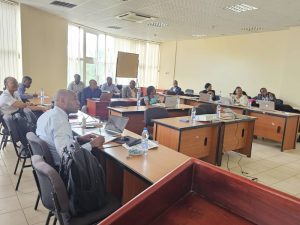
The first presentation of the day, delivered by Dr. Zena, focused on the key reasons for prioritizing policies for Inclusive Agricultural Transformation. Dr. Zena acknowledged the government’s extensive list of potential policy and investment recommendations. However, she pointed out that resource limitations necessitate prioritizing these recommendations. The PPVC approach plays a crucial role in selecting priority investment areas based on evidence, ensuring the government maximizes the impact of its limited resources.
The second presentation, delivered by Ms. Aika and Mr. Kangile, elaborated on the five steps of the PPVC approach:
- Economic and Policy Landscape Analysis: This step involves assessing the economic and policy environment, identifying key factors and trends that impact value chains and investments.
- Value Chain Contextualization: This step focuses on gaining a deep understanding of the value chain dynamics, including actors, processes, and linkages. This helps identify potential areas for intervention and improvement.
- Stakeholder Engagement for Deep Dive Selection: Priority areas are selected through a participatory approach that considers five categories of analysis: market-led potential, inclusiveness, transformation, climate impact, and a comprehensive value chain scan. This ensures a holistic view of the value chain and strengthens decision-making.
- Value Chain Deep Dive Analysis: This step involves a focused analysis of the selected priority areas. It includes value chain mapping, gross margin analysis and performance evaluation, identifying constraints, and proposing interventions to enhance competitiveness, sustainability, and inclusivity.
- Post-Implementation Monitoring and Evaluation of Value Chain: The final step involves monitoring the implemented interventions, evaluating their impact, and making necessary adjustments to ensure continuous improvement. This iterative process guarantees evidence-based decision-making throughout the value chain.
On the second day of the workshop, participants were divided into groups and assigned tasks related to applying the PPVC approach. These groups shared their ideas, presented their findings, and engaged in discussions with other participants.
